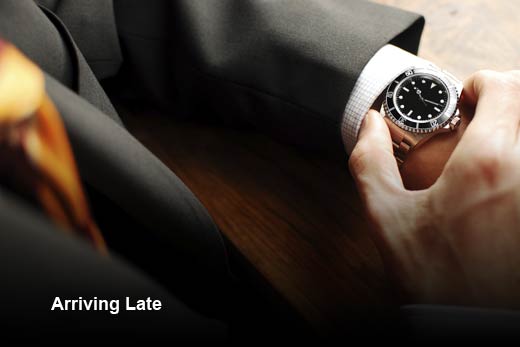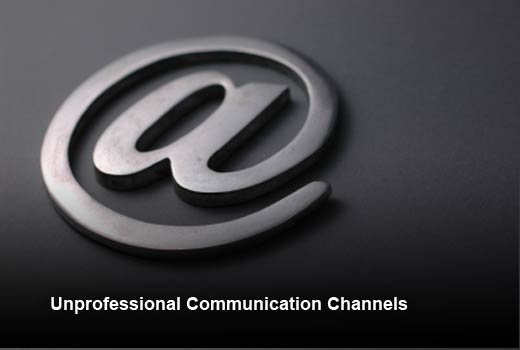Surviving the initial cut in a job applicant pool to land an interview is a good step on your way to that sought-after job offer. You can gain confidence knowing that your professional credentials passed the HR department’s scrutiny. In the interview, the hiring manager will ask for more details about your qualifications. Still, the ultimate decision will have less to do with how well you fit the job description, and more to do with the social skills you display in the interview.
A 2015 study from The Creative Group found that most social blunders during interviews result from thoughtlessness or poor interpersonal skills — and those blunders often become deal breakers. Interviewees who can’t make conversation, who talk incessantly or who continually check their phones leave a bad impression that not even an impeccable resume or glowing reference can offset.
In this slideshow, Vicky Oliver, a leading career development expert, has identified five social slip-ups that could act as a red flag for hiring managers.
Vicky Oliver is a leading career development expert and the multi-best-selling author of five books, including “301 Smart Answers to Tough Interview Questions” (Sourcebooks, 2005) and “301 Smart Answers to Tough Business Etiquette Questions” (Skyhorse, 2010). She is a sought-after speaker and seminar presenter and a popular media source, having made over 700 appearances in broadcast, print and online outlets. For more information, visit vickyoliver.com.

Interview Slip-Ups to Avoid
Click through for five social slip-ups job seekers should pay attention to and avoid during a job interview, as identified by Vicky Oliver.

Arriving Late
Walking in late — even when you have a legitimate excuse — will test your interviewer’s patience. Even worse is showing up late and unprepared. Unless you can make up for your tardiness by outshining the other candidates with your exceptional poise, relevant observations and insightful questions, expect to be scratched off the list.

A Weak Handshake
Much can be determined about a job candidate’s character from the initial handshake. When you have a weak grip, a clammy palm or won’t make eye contact, you imply a lack of confidence and timidity that would make a bad fit in most work environments.

Unusual Clothing Choice
Your professionalism comes across immediately through your choice of interview attire. If you dress casually (even if the organization has a relaxed work environment), it sends a message that you have a casual approach toward work. Or, if your attire suggests an evening of clubbing, it implies an inability to know how to dress appropriately in a professional setting.

Poor Body Posture
Body posture conveys a great deal about an applicant’s personality. Slumping signifies lack of confidence, leg swinging equates with nervousness, and arms folded against the chest demonstrate belligerence or arrogance. Pay close attention to the cues communicated through your body language. Hiring managers will read them accordingly.

Excessive Chit-Chat
Interviewees who pummel the interviewer with questions, prattle on in their answers or feel compelled to fill any silence with chit-chat will have hiring managers recoiling from their unchecked verbosity. Let this happen during your job interview and you’ll soon receive a rejection email.

Unsuitable Language Skills
Poor grammar is code for poor communications skills. Candidates who use colloquial phrases or are very informal with language can’t cut it in the professional world where written and verbal skills are paramount. Additionally, inappropriate or derogatory language shows a lack of sophistication or self-censorship. If you show any signs of inadequate communication skills, expect the interview to end quickly.

Unprofessional Communication Channels
After hiring managers cull through their lineup and select a finalist, they get ready to send an email with the job offer. But then they see “hotmama” or “partydude” in your handle. Or, they call to make you an offer and your voicemail blasts them with heavy metal music. There’s a good chance they’ll move on to their runner-up candidate and you’ll be back to the resume-submitting stage again.
















